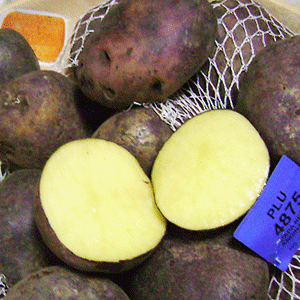
Since the dawn of the low-carb health and diet craze, which started almost a decade ago with the Atkins diet, people wanting to lose weight have been avoiding starches, including the humble potato.
Potatoes, arguably the most popular of all carbohydrate-rich foods and a 'natural' carb, has been shunned along with pasta and bread as devotees pile their plates high with steak and salad greens. For instance, a medium-sized cooked potato with skin, provides 1½ carbohydrate servings. Put another way, one 100g potato contains about 17g of carbohydrates.
Spokesperson for the Potato Council, Mebeko Thokola, told Health24 "We had little choice but to sink or swim. With over R20 million loss in sales from potatoes quarter-on-quarter, we had to either close business or re-invent the potato."
Scientists at the Council set about to evaluate the nutritional content of three different potato cultivar classification categories and found that one cultivar in particular, the Russet potato, had a DNA profile that allowed its starch content to be modified during cooking, significantly lowering, even completely destroying, its total carbohydrate content.
Read: Why you should eat potatoes
Understanding potatoes
The starch produced in potatoes is composed of a mixture of two different kinds of starch: amylose and amylopectin, each with it's own distinct properties.
Both of these kinds of starch are useful for human nutrition, but when it comes to the Glycemic Index of potatoes, the mixture of different starches presented a problem.
The scientists, who worked along with the Pretoria University of Technology, looked into how they could separate the two kinds of starch using expansive processes in the hope that by separating them they could genetically modify them and thereby reduce the starch content.
Once they had isolated the starches, they prepared them in a variety of ways - boiling, frying and grilling. All three heat processes significantly reduced the starch content of the potatoes, and it was the total destruction of amylopectin that had the greatest de-carbing effect on the tuber.
"The problem was that we were left with very little in terms of a food product to eat", says Gerrie Vister, chief scientist on the project. "So what we did is we spliced the amylopectin's genes with different low-carb but fibre-rich vegetables such as cauliflower and asparagus. By combining the fibrous molecules of these vegetable with that of the de-carbed Russet potato, we were able to create a new vegetable that not only tastes almost exactly like a potato, but has virtually no carbohydrates."
How Potatolite was created
The next step, says Vister, was to grow them. "It took us two years to refine. We employed the common technique of backcross breeding. In a nutshell, transgenic plants are crossed with elite breeding lines using traditional plant breeding methods to combine the desired traits of elite parents and the transgene into a single line.
The offspring are repeatedly crossed back to the elite line to obtain a high yielding transgenic line. The result will be a plant with a nutritional profile close to current hybrids (the cauliflower and asparagus) that expresses the trait encoded by the new transgene."
Potatolite now reportedly has only 1g of carbohydrate per 100g, making it once again available to those on low-carbohydrate diets.
The council developed seeds of the new cultivar - naming it Solanoakes Tubarosum or, more commonly, Potatolite - and made them available to potato farmers in Kwa-Zulu Natal. By mid March 2015 the first crops were ready for harvesting.
Says Thokolo "We have shipped 500 tonnes of these new carb-free potatoes to market and are proud to say that they will be available at all leading retailers from today."
When we questioned her on the safety of this new 'frankenstein' food, she remained optimistic. "At this point people are starved of their carbohydrates, regardless of what Tim Noakes says is good for them or not.
We are filling an important gap, and ongoing research into the safety as carb-free potatoes as a food source remains a priority."
Image: Potato produce in KZN. The purple column illustrates the Potatolite production. Source: Potatoes South Africa

What do you think?
Would you try this new cultivar, or are we unnecessarily meddling with nature again just to keep the coffers full? Well it is April Fool's Day so we can at least for one day! Hahahahahaha.
Let us know in the comments below.
N.B. This story was a hoax for April Fools Day 2015. Thanks for reading and see you next year!
Read more:
Why we need carbohydrates
All about potato nutrition
What Tim Noakes eats




 Publications
Publications
 Partners
Partners










